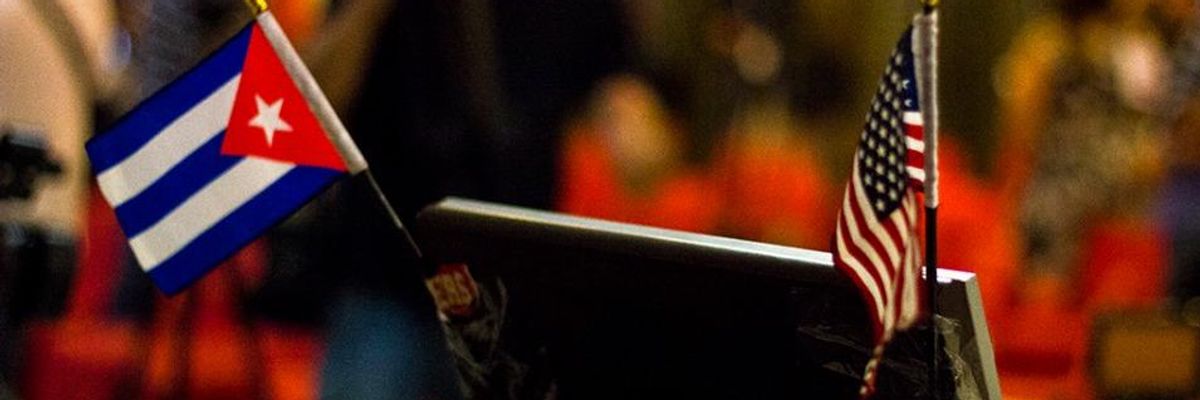The U.S. has formally removed Cuba from its list of "state sponsors of terror," the State Department announced on Friday, signaling one more step forward in a renewal of diplomatic relations between the two countries after more than 50 years.
Some economic sanctions against the Caribbean nation will remain in place.
President Barack Obama announced his intention to remove Cuba from the list in April, giving Congress 45 days to consider the new policy.
Cuba's placement on the list, which began in 1982 over its support of leftist movements in South and Central America, has complicated the country's access to financial markets for decades and been a roadblock in the building of foreign embassies there.
Keith Bolender, freelance journalist and author of Voices From the Other Side: An Oral History of Terrorism Against Cuba, noted in April that Cuba's inclusion on the list "has long been opposed by the Castro government for its hypocrisy based on the long history of terrorism the United States has supported against Cuba."
"Cuba's removal from the list will hopefully warm efforts to normalize relations between the two nations," CODEPINK co-founder Medea Benjamin told Common Dreams on Friday. However, while the decision is "a step in the right direction... we still have a long road ahead," she added.
"As Cuba's removal from the list opens the pathway to opening embassies, we must now turn to Congress and demand that they further the president's actions by ending the American travel ban to Cuba and the entire economic embargo," Benjamin said.
The only countries which remain on the list now are Iran, Sudan, and Syria.

